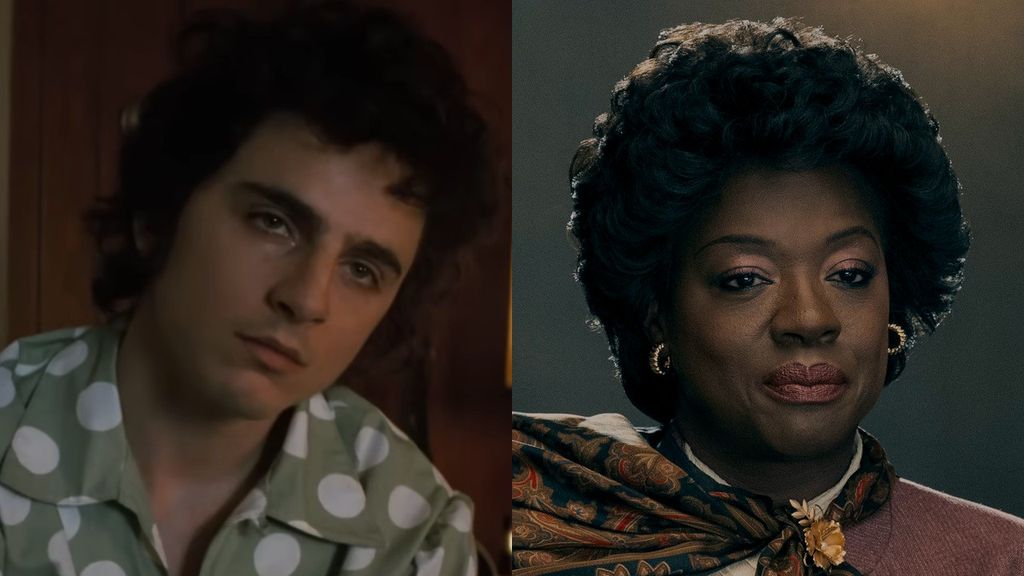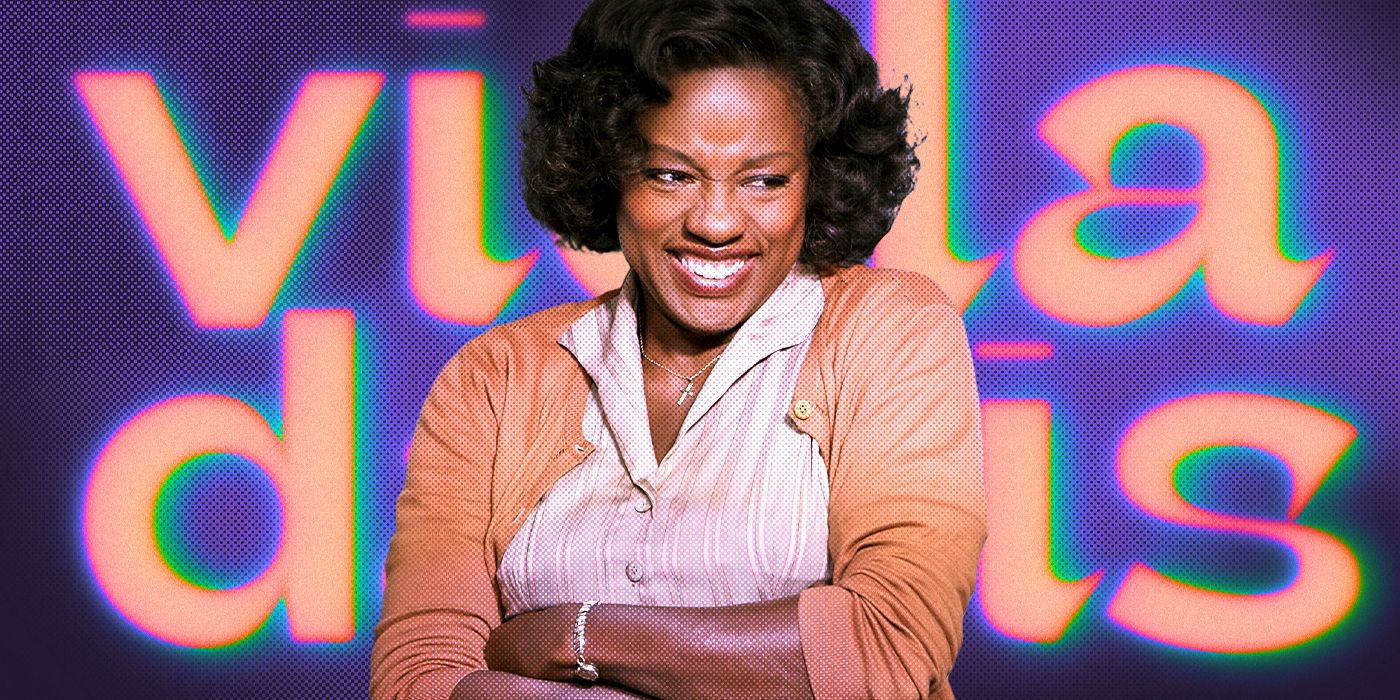Viola Davis' Perfect Response To Chalamet: The Untold Story You Need To Know
When it comes to Hollywood drama, few moments have sparked as much conversation as Viola Davis' response to Timothée Chalamet. The world was watching, and Viola delivered a moment that will go down in history. But what exactly happened? And why does it matter? Let’s dive right into the heart of the matter, because this isn’t just about two celebrities—it’s about representation, respect, and standing up for what’s right.
You know how sometimes a single comment or reaction can set off a chain reaction? Well, that’s exactly what happened when Viola Davis stepped into the spotlight to address Timothée Chalamet’s controversial remarks. It wasn’t just a casual exchange; it was a powerful statement that resonated with millions of people around the globe. So, if you’ve been wondering what all the fuss is about, you’re in the right place.
Now, before we get too deep into the details, let’s set the stage. This isn’t just another celebrity feud. It’s about how Viola Davis used her platform to highlight important issues in the entertainment industry. Her response wasn’t just a reply—it was a call to action for change. So, whether you’re a fan of Viola Davis or just someone who cares about fairness and equality, this story is worth your time.
Read also:Unveiling The Mysteries Of April 21 Zodiac Sign Personality A Deep Dive
Who Is Viola Davis? A Quick Bio
Before we break down the drama, let’s take a moment to appreciate who Viola Davis is. She’s more than just an actress; she’s a force of nature in Hollywood. Known for her incredible performances in films like "Fences" and "Ma Rainey’s Black Bottom," Viola has carved out a place for herself as one of the most respected names in the industry.
Viola Davis: The Early Years
Growing up in Rhode Island, Viola faced challenges that would’ve stopped most people in their tracks. But instead of letting her circumstances define her, she used them as fuel to chase her dreams. Her journey from a small town to the big screen is nothing short of inspiring. Check out the table below for a quick rundown of her life:
| Full Name | Viola Davis |
|---|---|
| Birthdate | August 11, 1965 |
| Place of Birth | St. Matthews, South Carolina |
| Occupation | Actress, Producer |
| Notable Works | "How to Get Away with Murder," "Fences," "The Help" |
The Incident: What Did Timothée Chalamet Say?
Now, let’s talk about the elephant in the room. Timothée Chalamet, the young heartthrob known for his roles in "Call Me by Your Name" and "Dune," found himself at the center of controversy after making some comments that rubbed people the wrong way. While promoting his latest project, he made a remark that many felt was dismissive of Black actors and their contributions to cinema.
- Chalamet’s comments were seen as tone-deaf.
- People questioned whether he understood the nuances of representation.
- His remarks sparked a heated debate on social media.
But here’s the thing: Timothée isn’t the first celebrity to stumble over their words, and he won’t be the last. The real question is, how do we move forward from moments like these?
Viola Davis' Response: Why It Matters
When Viola Davis stepped into the spotlight to address Chalamet’s comments, she didn’t just respond—she educated. Her words were measured, thoughtful, and packed with emotion. She spoke not just for herself but for countless others who’ve felt marginalized in the industry.
Key Points in Viola’s Statement
Viola’s response wasn’t just a rebuttal; it was a masterclass in how to handle sensitive topics with grace and intelligence. Here are some of the key takeaways:
Read also:Barbi Benton Now The Glamorous Journey Of A Hollywood Icon
- She emphasized the importance of listening to voices that aren’t always heard.
- Viola highlighted the need for genuine allyship in Hollywood.
- She reminded everyone that representation isn’t just a trend—it’s a necessity.
Her words struck a chord with fans and critics alike, proving once again why she’s such a respected figure in the industry.
Why Representation Matters in Hollywood
Let’s be real: Hollywood has a long way to go when it comes to representation. For years, the industry has been dominated by a narrow perspective, leaving out entire communities. But things are slowly changing, and Viola Davis is at the forefront of that change.
Representation isn’t just about ticking boxes; it’s about telling authentic stories that reflect the world we live in. When Viola speaks out, she’s not just advocating for herself—she’s advocating for everyone who feels invisible in the entertainment landscape.
How Viola Davis Has Shaped the Industry
If you’ve ever wondered how one person can make a difference, look no further than Viola Davis. From her groundbreaking role in "How to Get Away with Murder" to her powerhouse performances on the big screen, Viola has redefined what it means to be a leading lady in Hollywood.
Her impact extends beyond the screen, too. Viola uses her platform to amplify underrepresented voices and push for systemic change. She’s not just an actress; she’s a trailblazer.
Viola’s Impact on Young Actors
For aspiring actors, especially those from marginalized communities, Viola Davis is a beacon of hope. Her career proves that talent and hard work can break down even the toughest barriers. She’s shown that representation isn’t a privilege—it’s a right.
What Can We Learn from Viola’s Response?
Viola Davis’ response to Timothée Chalamet teaches us a valuable lesson: how we handle conflict matters. Instead of reacting with anger, Viola chose to educate. She turned a potentially divisive moment into an opportunity for growth and understanding.
Her approach shows us that change doesn’t have to come from conflict—it can come from conversation. By speaking her truth with clarity and compassion, Viola set an example for all of us to follow.
The Future of Representation in Hollywood
As we look to the future, it’s clear that representation will continue to be a driving force in Hollywood. Viola Davis is just one of many voices leading the charge, and her influence will be felt for years to come.
But here’s the thing: change doesn’t happen overnight. It takes effort, commitment, and a willingness to listen. Viola’s response to Chalamet is a reminder that progress is possible when we work together.
Steps Toward a More Inclusive Industry
So, what can we do to support a more inclusive Hollywood? Here are a few ideas:
- Amplify underrepresented voices in media.
- Support projects that prioritize diversity and authenticity.
- Hold industry leaders accountable for their actions.
Every small action adds up, and together, we can create a more equitable entertainment landscape.
Conclusion: The Last Word on Viola Davis and Chalamet
As we wrap up this conversation, it’s clear that Viola Davis’ response to Timothée Chalamet was more than just a moment—it was a movement. Her words reminded us of the power of representation and the importance of standing up for what’s right.
So, what’s next? Well, that’s up to all of us. Whether you’re a fan of Viola Davis or just someone who cares about fairness in Hollywood, you have a role to play. Share this article, start a conversation, and let’s keep the momentum going.
And hey, if you want to dive deeper into the world of representation in entertainment, check out some of our other articles. There’s always more to learn, and together, we can make a difference.
Table of Contents
- Who Is Viola Davis? A Quick Bio
- The Incident: What Did Timothée Chalamet Say?
- Viola Davis' Response: Why It Matters
- Why Representation Matters in Hollywood
- How Viola Davis Has Shaped the Industry
- What Can We Learn from Viola’s Response?
- The Future of Representation in Hollywood
- Conclusion: The Last Word on Viola Davis and Chalamet
Article Recommendations

/tiff-2000-b8ae4870c85641758680508887d34cc6.jpg)
